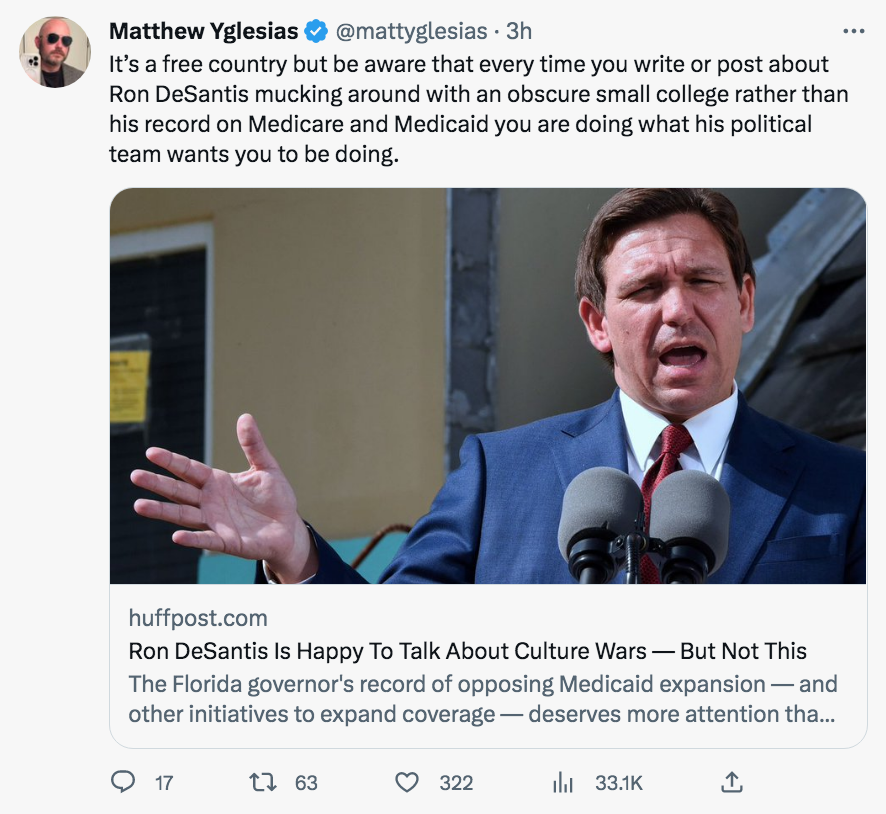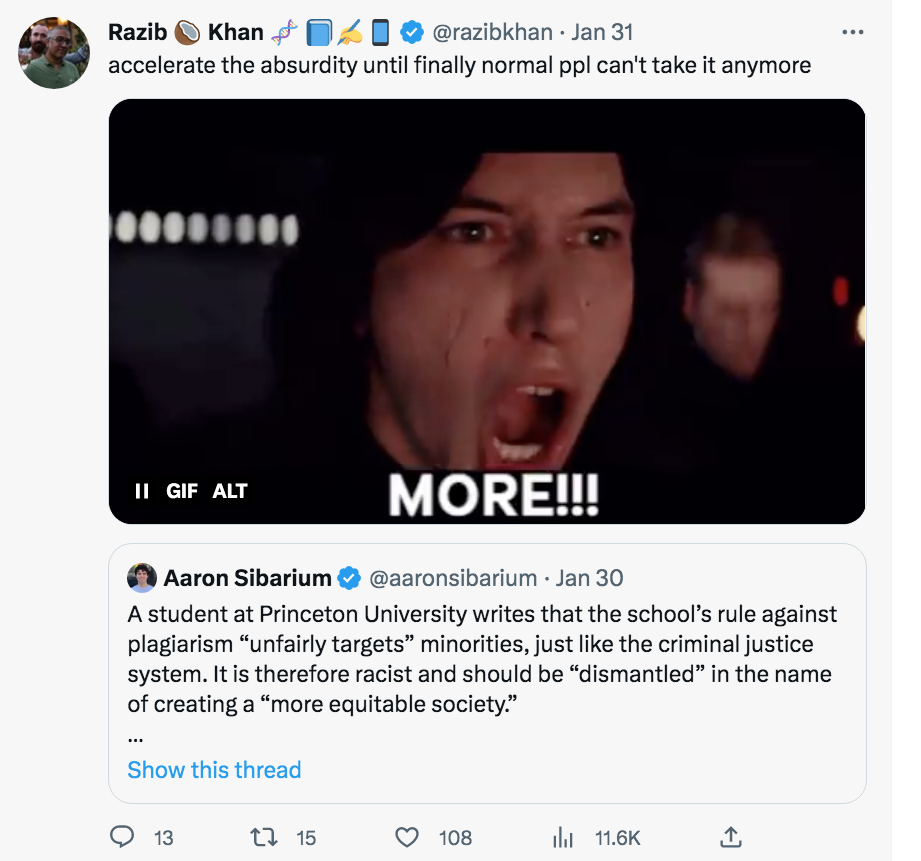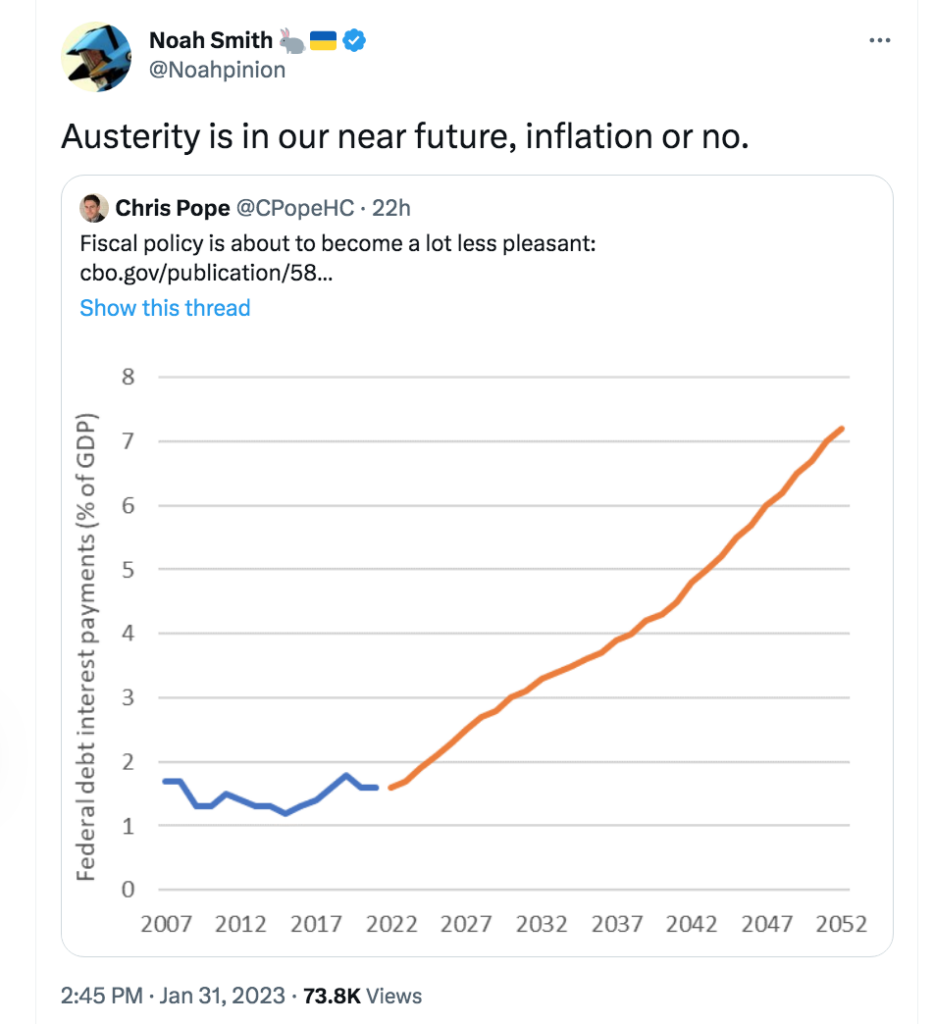Do the ducks ever shoot back?
Recall the metaphor “shooting ducks in a barrel”? It’s the phrase I think of when I see thoughtful progressives criticize the excesses of wokism. Their critiques are so obviously correct it’s hard to believe that anyone disagrees. So do the ducks ever shoot back? Are there any thoughtful rebuttals?
And yet we are told that the woke have taken over almost all of our key institutions.
[I suppose something analogous has happened on the right. Almost all thoughtful conservatives have written highly persuasive critiques of Trump, and yet Trumpism has taken over the GOP.]
These progressive critiques of woke excesses almost write themselves. I mean, how hard is it for an intelligent intellectual to write an op-ed full of stuff like this (From Nicholas Kristof):
As for my friends who are homeless, what they yearn for isn’t to be called houseless; they want housing.
Or this (from Freddie deBoer):
The basic stance of the social justice set, for a long time now, has been that they are 100% exempt from ordinary politics. BlackLivesMatter proponents have spent a year and a half acting as though their demand for justice is so transcendently, obviously correct that they don’t have to care about politics. When someone like David Shor gently says that they in fact do have to care about politics, and points out that they’ve accomplished nothing, they attack him rather than do the work of making their positions popular. Well, sooner or later, guys, you have to actually give a shit about what people who aren’t a part of your movement think. Sorry. That’s life. The universe is indifferent to your demand for justice, and will remain so until you bother to try to change minds. Nobody gives you what you want. That’s not how it works. Do politics. Think and speak strategically. Be disciplined. Work harder. And for fuck’s sake, give me a simple term to use to address you. Please? Because right now it sure looks like you don’t want to be named because you don’t want to be criticized.
Or Matt Yglesias:
Language is arbitrary and always changing, so personally I find “getting mad at language change” to be one of the lowest forms of reactionary politics. At the same time, it’s worth just applying a little bit of common sense to the question of who is and isn’t included by saying “practicum” instead of “field.” Highly educated people and white-collar workers who spend a lot of time bored at the office staring at computer screens and reading articles are well positioned to have large and flexible vocabularies. We are used to learning new words and learning how to use them.
I am quite fluent in why we don’t characterize non-white people as “minorities” anymore, and even why affirmatively characterizing them as “people of color” is in favor rather than saying “non-white,” which tends to center whiteness. I know what it means to “center” something. I know that URM stands for under-represented minorities, and that we tend not to spell it out because “minorities” is out of favor. I also know what URM means (not Asians) and how URM is distinguished from BIPOC. I don’t talk about third-world countries.
I know these things in large part for the same reason I know how to tie a bow tie. And while everyone knows about Skull & Bones, I also know about Scroll & Key and can tell you which school has eating clubs. But while there may be merit to cultivating a set of esoteric practices for the sake of maintaining a national (or these days, increasingly, global) elite class that can recognize its fellow members, that’s like saying (à la John Rawls) that there may be reasons for even egalitarians to support a certain amount of inequality.
These elite institutions and codes of manners are not egalitarian, not just because manners are insufficient but because their purpose is to be inegalitarian. Changing “field” into “practicum” doesn’t include more people — it’s a new means of excluding people whose information is out of date.
Relative to these thoughtful progressives, I am skeptical of many left-of-center public policies. But even if became converted to progressivism, my view of wokism would not change at all. In fact, I might become even more critical, as they would be hurting my cause.
Again, here’s Yglesias:

Some old school progressives seem to believe that wokism is a sort of secret plot by the neoliberal elite to divert attention away from economic inequality. That’s probably nonsense, but in some respects wokism does serve the material interest of the neoliberal elite, by making voters turn away from left wing political parties (not just in the US, but throughout the world.)
Here’s Freddie deBoer:
If you’re looking around online for criticism of Musk, you’ll find more in terms of pure volume that engages in culture war – going after him for the dumbshit rightwing memes he shares – than that which criticizes the position of billionaires in our economy, their disproportionate influence on our political process, and the connection between their riches and the poverty of others. This is a pretty effective gloss on the poverty of progressive priorities right now; even with one of the richest men in the world, people can’t look past culture war and see the structural problems underneath.
Montaigne pointed out that the barbarians that conquered Greece had a disdain for intellectuals. Surprisingly, they decided not to burn Greece’s libraries. One of their leaders pointed out that Greece was their enemy and that their intellectual pursuits would keep the Greeks from pursuing the sort of “vigorous and soldierly” lifestyle that would make them formidable military foes. I don’t know if Trump is funding the woke movement, but if he’s not then he’s even dumber than I thought.
PS. And it isn’t just progressives that get this point:

PPS. The Economist also sees how the scolds on the left are their own worst enemy. Remember when being left wing was cool?
The left once drew energy from scorning authority and bourgeois convention. But as it becomes America’s enforcer of social norms, it increasingly treats the arts as a tool for instruction. As a result it is surrendering what puts the arts in society’s vanguard, the capacity to question and shock.


